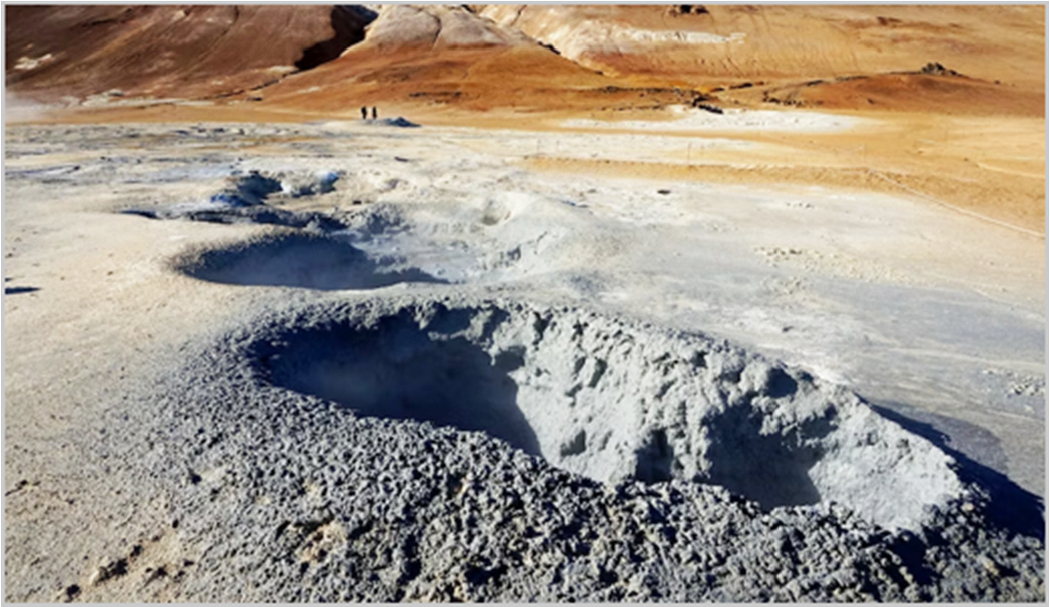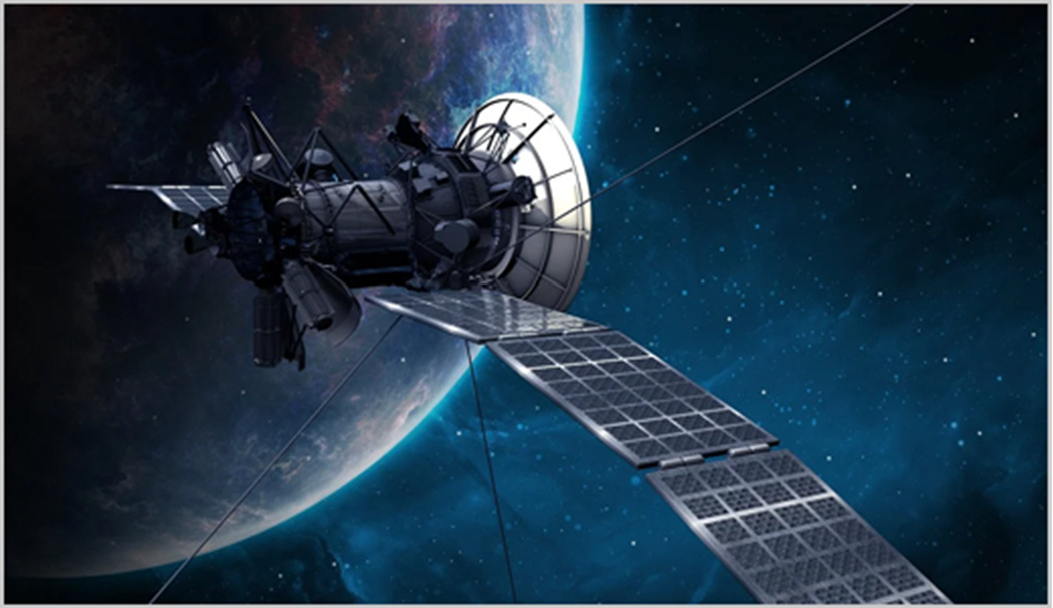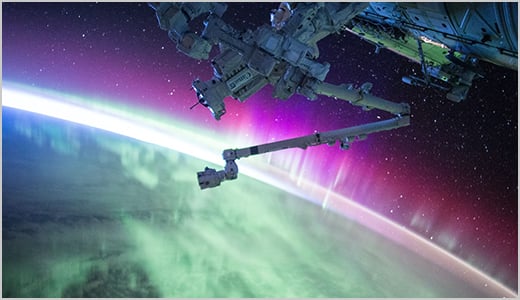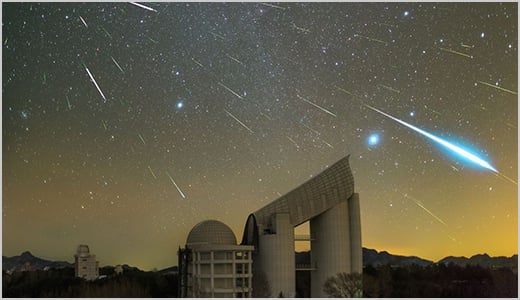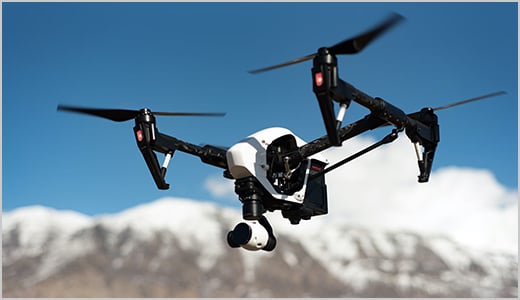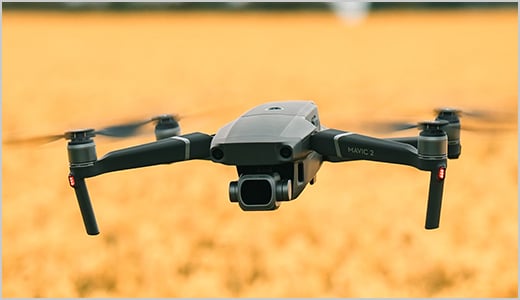
Journal Menu
► ▼ Journal Menu-
- Aerospace Home
- Aims & Scope
- Editorial Board
- Reviewer Board
- Topical Advisory Panel
- Instructions for Authors
- Special Issues
- Topics
- Sections & Collections
- Article Processing Charge
- Indexing & Archiving
- Most Cited & Viewed
- Journal Statistics
- Journal History
- Journal Awards
- Society Collaborations
- Conferences
- Editorial Office
Journal Browser
► ▼ Journal BrowserNeed Help?
Announcements
29 June 2023
Aerospace | Highly Cited Papers in 2021–2022
1. “Rocket Lab Mission to Venus”
by Richard French, Christophe Mandy, Richard Hunter, Ehson Mosleh, Doug Sinclair, Peter Beck, Sara Seager, Janusz J. Petkowski, Christopher E. Carr, David H. Grinspoon et al.
Aerospace 2022, 9(8), 445; https://doi.org/10.3390/aerospace9080445
Available online: https://www.mdpi.com/2226-4310/9/8/445
2. “Review of State-of-the-Art Green Monopropellants: For Propulsion Systems Analysts and Designers”
by Ahmed E. S. Nosseir, Angelo Cervone and Angelo Pasini
Aerospace 2021, 8(1), 20; https://doi.org/10.3390/aerospace8010020
Available online: https://www.mdpi.com/2226-4310/8/1/20
3. “Electric Propulsion Methods for Small Satellites: A Review”
by Dillon O’Reilly, Georg Herdrich and Darren F. Kavanagh
Aerospace 2021, 8(1), 22; https://doi.org/10.3390/aerospace8010022
Available online: https://www.mdpi.com/2226-4310/8/1/22
4. “Venus Life Finder Missions Motivation and Summary”
by Sara Seager, Janusz J. Petkowski, Christopher E. Carr, David H. Grinspoon, Bethany L. Ehlmann, Sarag J. Saikia, Rachana Agrawal, Weston P. Buchanan, Monika U. Weber, Richard French et al.
Aerospace 2022, 9(7), 385; https://doi.org/10.3390/aerospace9070385
Available online: https://www.mdpi.com/2226-4310/9/7/385
5. “Compressive Behaviour of Additively Manufactured Lattice Structures: A Review”
by Solomon O. Obadimu and Kyriakos I. Kourousis
Aerospace 2021, 8(8), 207; https://doi.org/10.3390/aerospace8080207
Available online: https://www.mdpi.com/2226-4310/8/8/207
6. “Autonomous Trajectory Generation Algorithms for Spacecraft Slew Maneuvers”
by Andrew Sandberg and Timothy Sands
Aerospace 2022, 9(3), 135; https://doi.org/10.3390/aerospace9030135
Available online: https://www.mdpi.com/2226-4310/9/3/135
7. “Spoken Instruction Understanding in Air Traffic Control: Challenge, Technique, and Application”
by Yi Lin
Aerospace 2021, 8(3), 65; https://doi.org/10.3390/aerospace8030065
Available online: https://www.mdpi.com/2226-4310/8/3/65
8. “Multi-Aircraft Trajectory Collaborative Prediction Based on Social Long Short-Term Memory Network”
by Zhengfeng Xu, Weili Zeng, Xiao Chu and Puwen Cao
Aerospace 2021, 8(4), 115; https://doi.org/10.3390/aerospace8040115
Available online: https://www.mdpi.com/2226-4310/8/4/115
9. “Constrained Motion Planning of 7-DOF Space Manipulator via Deep Reinforcement Learning Combined with Artificial Potential Field”
by Yinkang Li, Danyi Li, Wenshan Zhu, Jun Sun, Xiaolong Zhang and Shuang Li
Aerospace 2022, 9(3), 163; https://doi.org/10.3390/aerospace9030163
Available online: https://www.mdpi.com/2226-4310/9/3/163
10. “A Detailed Survey and Future Directions of Unmanned Aerial Vehicles (UAVs) with Potential Applications”
by Nourhan Elmeseiry, Nancy Alshaer and Tawfik Ismail
Aerospace 2021, 8(12), 363; https://doi.org/10.3390/aerospace8120363
Available online: https://www.mdpi.com/2226-4310/8/12/363
28 June 2023
2022 Impact Factors for MDPI Journals
The 2022 citation metrics have been released in the Journal Citation Reports (JCR), and we’re pleased to announce the following results for MDPI journals:

We are thrilled to announce that 90% of our ranked MDPI journals, specifically 86 out of 96 (captured in the table below), are performing above average in Q1 or Q2. This year, Clarivate has expanded its Impact Factor (IF) awards to include journals in the Emerging Sources Citation Index (ESCI) and the Arts and Humanities Citation Index (AHCI), providing greater transparency for the full set of journals indexed in the Web of Science Core Collection. As a result, 111 of MDPI journals have received their first IF in 2023, with 37 journals surpassing an IF of 3.0. In total, 208 MDPI journals have been honored with an IF.
Clarivate explains that by "expanding the coverage but holding to highly selective standards, the [Impact Factor] is now a reliable indicator of trustworthiness, as well as a measure of scholarly impact, at the journal level."
Please visit our blog post where we discuss the release of the latest citation metrics with our Indexing Manager, Dr. Constanze Schelhorn, to find out what's different this time around and how to make use of different metrics available.
| Journal | Impact Factor | Rank Quartile | Category |
| Vaccines | 7.8 | Q1 | Immunology |
| Medicine, Research & Experimental | |||
| Antioxidants | 7.0 | Q1 | Food Science & Technology |
| Biochemistry & Molecular Biology | |||
| Chemistry, Medicinal | |||
| Cells | 6.0 | Q2 | Cell Biology |
| Nutrients | 5.9 | Q1 | Nutrition & Dietetics |
| International Journal of Molecular Sciences | 5.6 | Q1 | Biochemistry & Molecular Biology |
| Q2 | Chemistry, Multidisciplinary | ||
| Journal of Theoretical and Applied Electronic Commerce Research | 5.6 | Q2 | Business |
| Biomolecules | 5.5 | Q1 | Biochemistry & Molecular Biology |
| Biosensors | 5.4 | Q1 | Chemistry, Analytical |
| Instruments & Instrumentation | |||
| Q2 | Nanoscience & Nanotechnology | ||
| Fractal and Fractional | 5.4 | Q1 | Mathematics, Interdisciplinary Applications |
| Marine Drugs | 5.4 | Q1 | Chemistry, Medicinal |
| Pharmacology & Pharmacy | |||
| Pharmaceutics | 5.4 | Q1 | Pharmacology & Pharmacy |
| Nanomaterials | 5.3 | Q1 | Physics, Applied |
| Q2 | Chemistry, Multidisciplinary | ||
| Materials Science, Multidisciplinary | |||
| Nanoscience & Nanotechnology | |||
| Cancers | 5.2 | Q2 | Oncology |
| Foods | 5.2 | Q1 | Food Science & Technology |
| Polymers | 5.0 | Q1 | Polymer Science |
| Remote Sensing | 5.0 | Q1 | Geosciences, Multidisciplinary |
| Q2 | Remote Sensing | ||
| Imaging Science & Photographic Technology | |||
| Environmental Sciences | |||
| Antibiotics | 4.8 | Q1 | Pharmacology & Pharmacy |
| Q2 | Infectious Diseases | ||
| Drones | 4.8 | Q2 | Remote Sensing |
| Journal of Functional Biomaterials | 4.8 | Q2 | Engineering, Biomedical |
| Materials Science, Biomaterials | |||
| Biomedicines | 4.7 | Q1 | Pharmacology & Pharmacy |
| Q2 | Biochemistry & Molecular Biology | ||
| Medicine, Research & Experimental | |||
| Journal of Fungi | 4.7 | Q2 | Mycology |
| Microbiology | |||
| Viruses | 4.7 | Q2 | Virology |
| Bioengineering | 4.6 | Q2 | Engineering, Biomedical |
| Gels | 4.6 | Q1 | Polymer Science |
| Molecules | 4.6 | Q2 | Chemistry, Multidisciplinary |
| Biochemistry & Molecular Biology | |||
| Pharmaceuticals | 4.6 | Q2 | Pharmacology & Pharmacy |
| Chemistry, Medicinal | |||
| Toxics | 4.6 | Q1 | Toxicology |
| Q2 | Environmental Sciences | ||
| Biomimetics | 4.5 | Q1 | Engineering, Multidisciplinary |
| Q2 | Materials Science, Biomaterials | ||
| Microorganisms | 4.5 | Q2 | Microbiology |
| Plants | 4.5 | Q1 | Plant Sciences |
| Biology | 4.2 | Q2 | Biology |
| Chemosensors | 4.2 | Q2 | Instruments & Instrumentation |
| Chemistry, Analytical | |||
| Electrochemistry | |||
| Membranes | 4.2 | Q2 | Engineering, Chemical |
| Materials Science, Multidisciplinary | |||
| Chemistry, Physical | |||
| Polymer Science | |||
| Toxins | 4.2 | Q1 | Toxicology |
| Q2 | Food Science & Technology | ||
| Metabolites | 4.2 | Q2 | Biochemistry & Molecular Biology |
| Batteries | 4.0 | Q2 | Electrochemistry |
| Materials Science, Multidisciplinary | |||
| Q3 | Energy & Fuels | ||
| Catalysts | 3.9 | Q2 | Chemistry, Physical |
| Journal of Clinical Medicine | 3.9 | Q2 | Medicine, General & Internal |
| Land | 3.9 | Q2 | Environmental Studies |
| Sensors | 3.9 | Q2 | Instruments & Instrumentation |
| Chemistry, Analytical | |||
| Engineering, Electrical & Electronic | |||
| Sustainability | 3.9 | Q2 | Environmental Sciences (SCIE) |
| Environmental Studies (SSCI) | |||
| Q3 | Green & Sustainable Science & Technology (SCIE) | ||
| Green & Sustainable Science & Technology (SSCI) | |||
| Buildings | 3.8 | Q2 | Construction & Building Technology |
| Engineering, Civil | |||
| Agronomy | 3.7 | Q1 | Agronomy |
| Q2 | Plant Sciences | ||
| Fermentation | 3.7 | Q2 | Biotechnology & Applied Microbiology |
| Pathogens | 3.7 | Q2 | Microbiology |
| Agriculture | 3.6 | Q1 | Agronomy |
| Diagnostics | 3.6 | Q2 | Medicine, General & Internal |
| Genes | 3.5 | Q2 | Genetics & Heredity |
| Journal of Intelligence | 3.5 | Q2 | Psychology, Multidisciplinary |
| Lubricants | 3.5 | Q2 | Engineering, Mechanical |
| Processes | 3.5 | Q2 | Engineering, Chemical |
| Coatings | 3.4 | Q2 | Materials Science, Coatings & Films |
| Physics, Applied | |||
| Q3 | Materials Science, Multidisciplinary | ||
| ISPRS International Journal of Geo-Information | 3.4 | Q2 | Geography, Physical |
| Q3 | Computer Science, Information Systems | ||
| Remote Sensing | |||
| Materials | 3.4 | Q2 | Metallurgy & Metallurgical Engineering |
| Physics, Applied | |||
| Physics, Condensed Matter | |||
| Q3 | Materials Science, Multidisciplinary | ||
| Chemistry, Physical | |||
| Micromachines | 3.4 | Q2 | Instruments & Instrumentation |
| Physics, Applied | |||
| Chemistry, Analytical | |||
| Q3 | Nanoscience & Nanotechnology | ||
| Water | 3.4 | Q2 | Water Resources |
| Environmental Sciences | |||
| Brain Sciences | 3.3 | Q3 | Neurosciences |
| Energies | 3.2 | Q3 | Energy & Fuels |
| Fire | 3.2 | Q1 | Forestry |
| Q2 | Ecology | ||
| Life | 3.2 | Q2 | Biology |
| Current Issues in Molecular Biology | 3.1 | Q3 | Biochemistry & Molecular Biology |
| Horticulturae | 3.1 | Q1 | Horticulture |
| Animals | 3.0 | Q1 | Agriculture, Dairy & Animal Science |
| Veterinary Sciences | |||
| Insects | 3.0 | Q1 | Entomology |
| Atmosphere | 2.9 | Q3 | Meteorology & Atmospheric Sciences |
| Environmental Sciences | |||
| Electronics | 2.9 | Q2 | Engineering, Electrical & Electronic |
| Physics, Applied | |||
| Q3 | Computer Science, Information Systems | ||
| Forests | 2.9 | Q1 | Forestry |
| Inorganics | 2.9 | Q2 | Chemistry, Inorganic & Nuclear |
| Journal of Marine Science and Engineering | 2.9 | Q1 | Engineering, Marine |
| Q2 | Oceanography | ||
| Engineering, Ocean | |||
| Metals | 2.9 | Q2 | Metallurgy & Metallurgical Engineering |
| Q3 | Materials Science, Multidisciplinary | ||
| Tropical Medicine and Infectious Disease | 2.9 | Q2 | Tropical Medicine |
| Parasitology | |||
| Q3 | Infectious Diseases | ||
| Universe | 2.9 | Q2 | Astronomy & Astrophysics |
| Physics, Particles & Fields | |||
| Healthcare | 2.8 | Q2 | Health Policy & Services (SSCI) |
| Q3 | Health Care Sciences & Services (SCIE) | ||
| Applied Sciences | 2.7 | Q2 | Engineering, Multidisciplinary |
| Physics, Applied | |||
| Q3 | Chemistry, Multidisciplinary | ||
| Materials Science, Multidisciplinary | |||
| Crystals | 2.7 | Q2 | Crystallography |
| Q3 | Materials Science, Multidisciplinary | ||
| Entropy | 2.7 | Q2 | Physics, Multidisciplinary |
| Magnetochemistry | 2.7 | Q2 | Chemistry, Inorganic & Nuclear |
| Q3 | Chemistry, Physical | ||
| Materials Science, Multidisciplinary | |||
| Symmetry | 2.7 | Q2 | Multidisciplinary Sciences |
| Actuators | 2.6 | Q2 | Instruments & Instrumentation |
| Engineering, Mechanical | |||
| Aerospace | 2.6 | Q1 | Engineering, Aerospace |
| Behavioral Sciences | 2.6 | Q2 | Psychology, Multidisciplinary |
| Current Oncology | 2.6 | Q3 | Oncology |
| Machines | 2.6 | Q2 | Engineering, Mechanical |
| Q3 | Engineering, Electrical & Electronic | ||
| Medicina | 2.6 | Q3 | Medicine, General & Internal |
| Separations | 2.6 | Q3 | Chemistry, Analytical |
| Minerals | 2.5 | Q2 | Mining & Mineral Processing |
| Mineralogy | |||
| Geochemistry & Geophysics | |||
| Children | 2.4 | Q2 | Pediatrics |
| Diversity | 2.4 | Q2 | Biodiversity Conservation |
| Q3 | Ecology | ||
| Journal of Cardiovascular Development and Disease | 2.4 | Q3 | Cardiac & Cardiovascular Systems |
| Mathematics | 2.4 | Q1 | Mathematics |
| Photonics | 2.4 | Q3 | Optics |
| Veterinary Sciences | 2.4 | Q1 | Veterinary Sciences |
| Fishes | 2.3 | Q2 | Marine & Freshwater Biology |
| Fisheries | |||
| Axioms | 2.0 | Q2 | Mathematics, Applied |
| Systems | 1.9 | Q2 | Social Sciences, Interdisciplinary |
| Tomography | 1.9 | Q3 | Radiology, Nuclear Medicine & Medical Imaging |
Note: The Journal of Personalized Medicine's Impact Factor was omitted in the original release and will be assigned separately. Please find the data on the journal webpage in due course.
Source: 2022 Journal Impact Factors, Journal Citation Reports TM (Clarivate, 2023)
28 June 2023
2023 International Asteroid Day
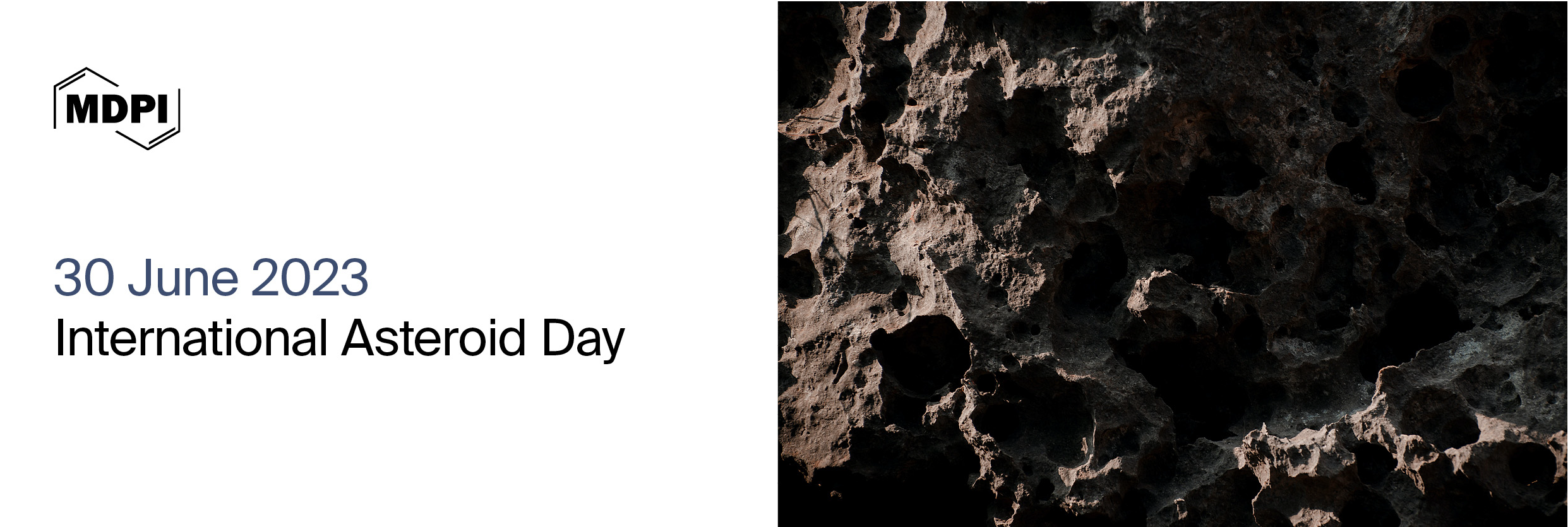
International Asteroid Day is observed annually on 30 June to mark the date of Earth’s largest asteroid impact in recorded history, the Siberia Tunguska event. It was established by the United Nations in 2016 to increase public awareness of the risk of an asteroid impact and to inform the public about crisis communication actions to be taken at the global level in the event of a credible NEO threat.
To further explore the related research on the 2023 International Asteroid Day, we have gathered open access academic articles on the topic of asteroids. We hope to share the up-to-date scientific knowledge in the field of asteroids with the world on this special day.

|
|
|

“Applied Trajectory Design for CubeSat Close-Proximity Operations around Asteroids: The Milani Case”
by Claudio Bottiglieri, Felice Piccolo, Carmine Giordano, Fabio Ferrari and Francesco Topputo
Aerospace 2023, 10(5), 464; https://doi.org/10.3390/aerospace10050464
“Fitting Power Spectrum of Scalar Perturbations for Primordial Black Hole Production during Inflation”
by Daniel Frolovsky and Sergei V. Ketov
Astronomy 2023, 2(1), 47-57; https://doi.org/10.3390/astronomy2010005
“Avoiding the “Great Filter”: A Projected Timeframe for Human Expansion Off-World”
by Jonathan H. Jiang, Philip E. Rosen and Kristen A. Fahy
Galaxies 2021, 9(3), 53; https://doi.org/10.3390/galaxies9030053
“History of the Terminal Cataclysm Paradigm: Epistemology of a Planetary Bombardment That Never (?) Happened”
by William K. Hartmann
Geosciences 2019, 9(7), 285; https://doi.org/10.3390/geosciences9070285
“Small All-Range Lidar for Asteroid and Comet Core Missions”
by Xiaoli Sun, Daniel R. Cremons, Erwan Mazarico, Guangning Yang, James B. Abshire, David E. Smith, Maria T. Zuber, Mark Storm, Nigel Martin, Jacob Hwang et al.
Sensors 2021, 21(9), 3081; https://doi.org/10.3390/s21093081
“Trajectories Derived from Periodic Orbits around the Lagrangian Point L1 and Lunar Swing-Bys: Application in Transfers to Near-Earth Asteroids”
by Rebeca S. Ribeiro, Cristiano F. de Melo and Antônio F. B. A. Prado
Symmetry 2022, 14(6), 1132; https://doi.org/10.3390/sym14061132
“Capture in Regime of a Trapped Motion with Further Inelastic Collision for Finite-Sized Asteroid in ER3BP”
by Sergey Ershkov, Dmytro Leshchenko and Alla Rachinskaya
Symmetry 2022, 14(8), 1548; https://doi.org/10.3390/sym14081548
“New Tools for the Optimized Follow-Up of Imminent Impactors”
by Maddalena Mochi and Giacomo Tommei
Universe 2021, 7(1), 10; https://doi.org/10.3390/universe7010010
“Near-Earth Asteroid Capture via Using Lunar Flyby plus Earth Aerobraking”
by Yirui Wang and Mingtao Li
Universe 2021, 7(9), 316; https://doi.org/10.3390/universe7090316
“Short-Term Consequences of Asteroid Impacts into the Ocean: A Portuguese Case Study”
by Renato H. Morais, Luís F. F. M. Santos, André R. R. Silva and Rui Melicio
Universe 2022, 8(5), 279; https://doi.org/10.3390/universe8050279

|
Special Issue: “Space Missions to Small Bodies: Results and Future Activities” |
Special Issue: “Feature Papers in the Astronomical Sciences” |
|
Special Issue: “Terrestrial Meteorite Impacts and Impact Cratering” |
Special Issue: “Advances in Entry, Descent, and Landing (EDL) for Planetary Exploration” |
12 April 2023
2023 International Day of Human Space Flight
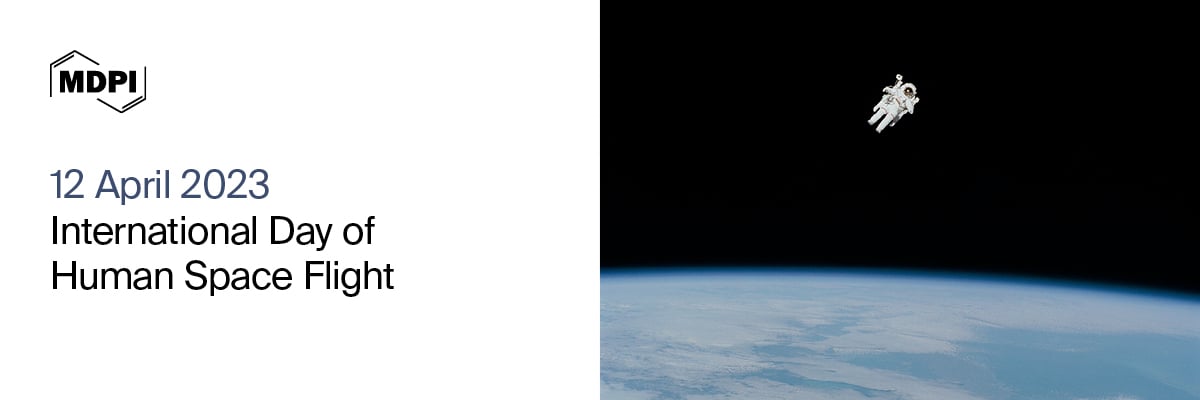
The International Day of Human Space Flight commemorates the first manned space flight by the Soviet citizen Yuri Gagarin on 12 April 1961. This day was declared the International Day of Human Space Flight in 2011 by the United Nations General Assembly resolution, to celebrate the beginning of the human space age. It reaffirms the important contribution of space science and technology in achieving sustainable development goals and increasing the well-being of countries and people, as well as ensuring the realization of their aspiration to preserve outer space for peaceful purposes.
In the course of human exploration of space, we have established many remarkable achievements and breakthrough milestones:
- In 1957, the first human-made Earth satellite, Sputnik I, was launched into outer space;
- In 1961, Yuri Gagarin became the first person to orbit the Earth;
- In 1969, Neil Armstrong became the first human to set foot upon the surface of the Moon;
- In 1996, the first spacecraft in human history successfully landed on Mars;
- In 1998, the International Space Station, a 16-nation international space program, launched for the first time;
- In 2009, the Kepler space telescope was launched, which has helped humans find thousands of exoplanets;
- In 2015, SpaceX successfully launched its Falcon 9 rocket and recovered the first stage.
To further explore the information about space on the 2023 International Day of Human Space Flight, we have gathered academic research from several journals on the topic of space flight, all of which are open access, enabling practitioners, policymakers and people around the world to access and share up-to-date scientific knowledge.
Let us celebrate the International Day of Human Space Flight together.

 |
 |
 |
 |
 |
 |
 |
 |
 |
 |
 |
 |


| Whirl Tower Demonstration of an SMA Blade Twist System Actuators 2022, 11(6), 141; https://doi.org/10.3390/act11060141 |
|
| A Tutorial and Review on Flight Control Co-Simulation Using Matlab/Simulink and Flight Simulators Automation 2022, 3(3), 486-510; https://doi.org/10.3390/automation3030025 |
|
| Reconfigurable Fault-Tolerant Control for Spacecraft Formation Flying Based on Iterative Learning Algorithms Appl. Sci. 2022, 12(5), 2485; https://doi.org/10.3390/app12052485 |
|
| Wilderness Search for Lost Persons Using a Multimodal Aerial-Terrestrial Robot Team Robotics 2022, 11(3), 64; https://doi.org/10.3390/robotics11030064 |
|
|
|
|
| Special Issue: Advances in CubeSat Sails and Tethers | Special Issue: Aerospace Mechanisms and Actuation |
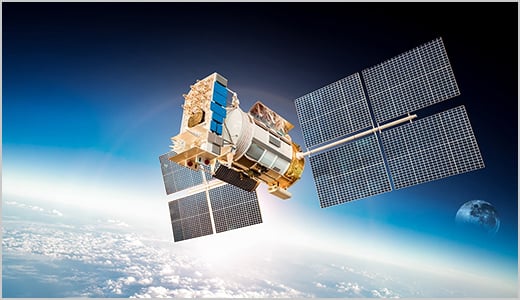 |
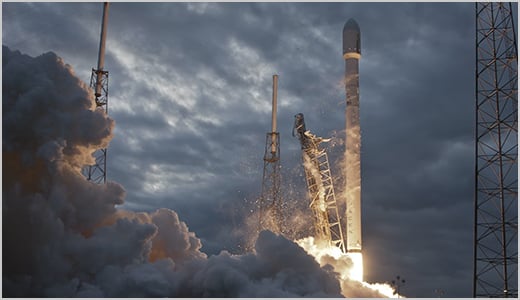 |
| Special Issue: Advanced Fault Diagnosis and Fault-Tolerant Control Technology of Spacecraft | Special Issue: Smart Sensors and Devices: Recent Advances and Applications |
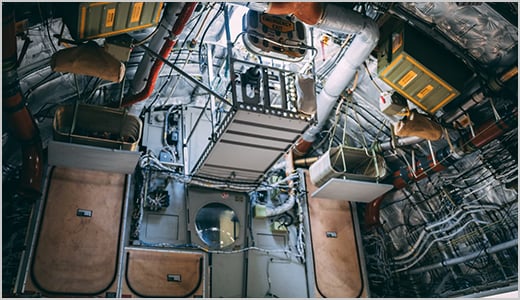 |
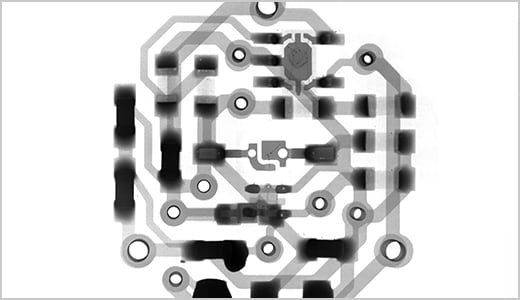 |


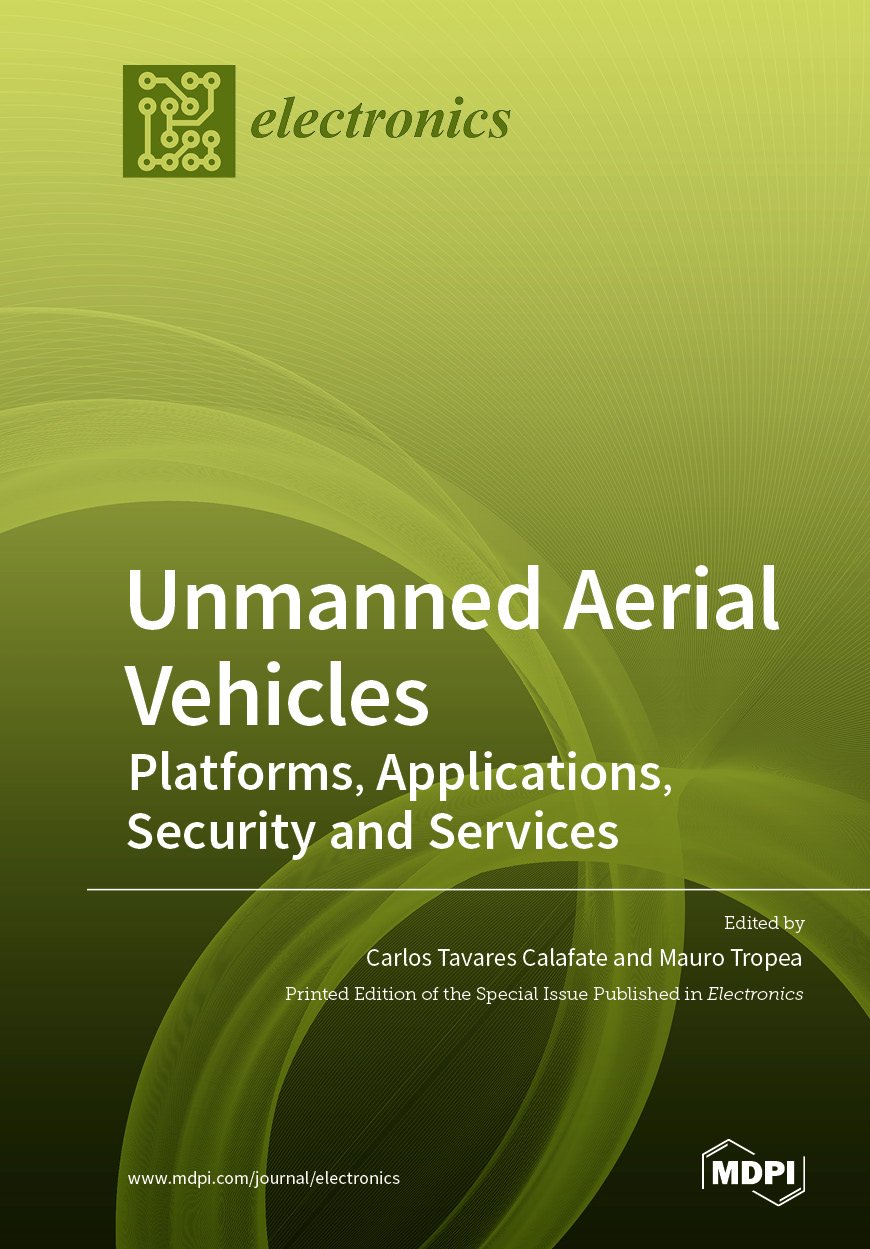 |
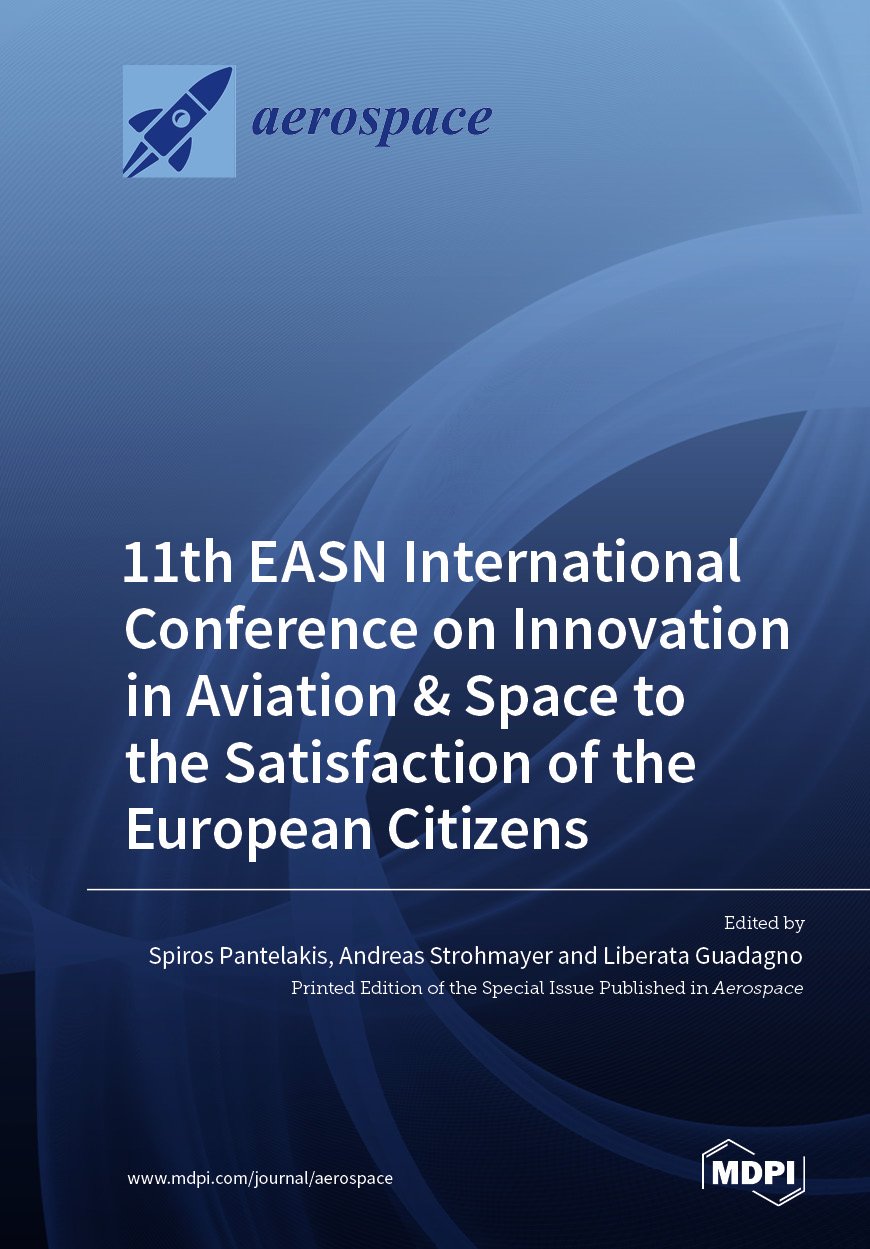 |
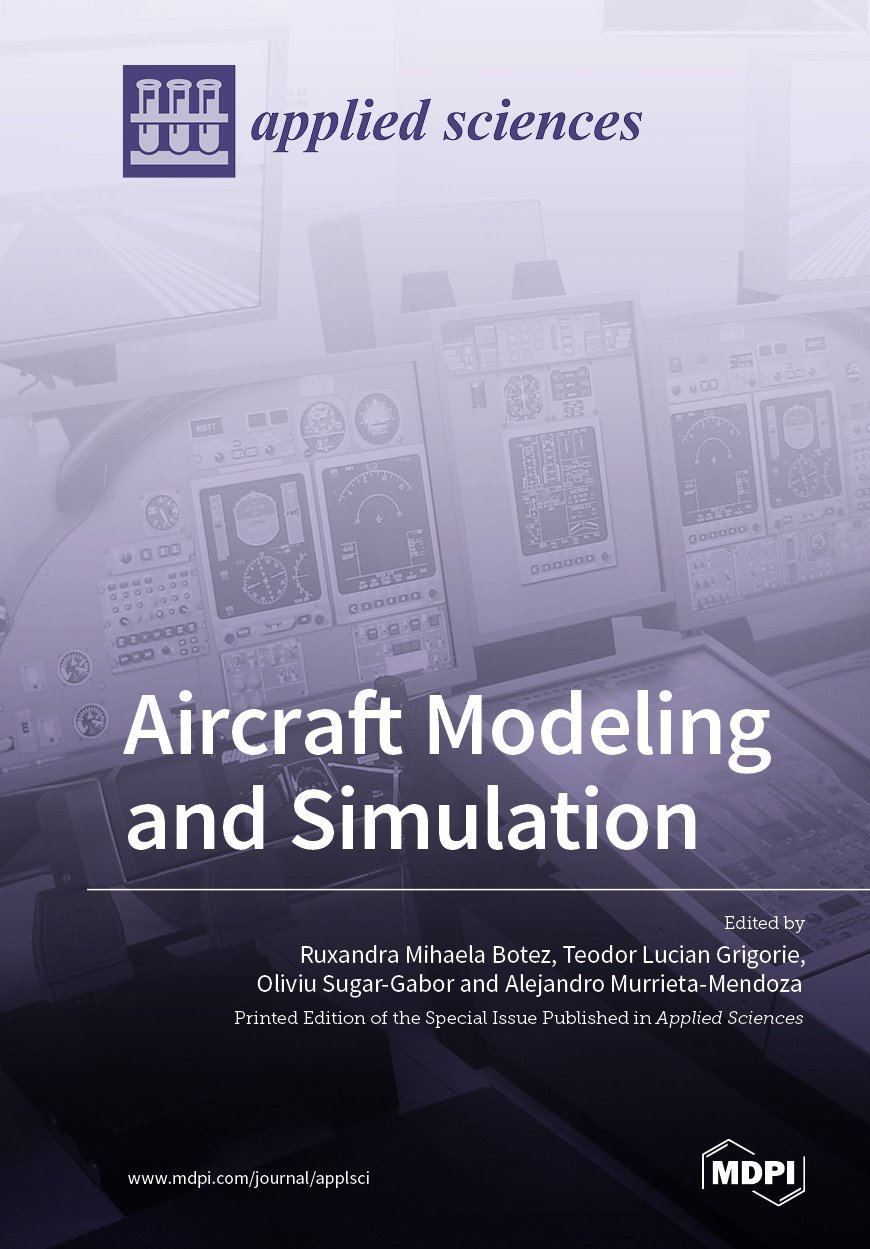 |
13 March 2023
MDPI’s Newly Launched Journals in December 2022
As a leading open access publisher, MDPI provides scholars with a high-quality and rich academic exchange platform by continuously expanding into new and exciting research areas.
In December 2022, MDPI launched five new journals, covering multiple subjects such as life sciences, biology, medicine and pharmacology, social sciences and humanities. These new journals are being edited by established scholars across the world.
|
Journal |
Founding Editor-in-Chief |
Journal Topics (Selected) |
|
Prof. Dr. Fabio Gresta, University of Messina, Italy| Editorial | view inaugural issue |
grass/forage/turf production; grassland management; pasture monitoring; grazing and livestock; grass agro-ecosystems| view journal scope | submit an article |
|
|
Prof. Dr. Christos G. Athanassiou, University of Thessaly, Greece| Editorial | view inaugural issue |
pesticides; fungicides; herbicides; fertilizers; soil conditioners| view journal scope | submit an article |
|
|
Prof. Dr. Stephen H. Safe, Texas A&M University, USA| Editorial | view inaugural issue |
receptor structure; receptor function; receptor signaling; receptor expression and regulation; receptor interactions with drugs| view journal scope | submit an article |
|
|
Dr. Jean Jacques Vanden Eynde, University of Mons-UMONS, Belgium| Editorial | view inaugural issue |
drug discovery; medicinal chemistry; preclinical and clinical research; marketed drugs; intellectual property and regulatory affairs| view journal scope | submit an article |
|
|
Prof. Dr. Heather Kanuka, University of Alberta, Canada| Editorial | view inaugural issue |
higher education; tertiary education; policy and practice in higher education; educational leadership in higher education; educational administration and management in higher education| view journal scope | submit an article |
If you are interested in creating more open access journals with us to publish cutting-edge research, please send your journal proposal application to newjournal-committee@mdpi.com.
7 March 2023
Displaying Co-Authors’ Email Addresses on the Webpage of Published Papers
MDPI is pleased to announce that we now display the co-authors’ email addresses in addition to the corresponding author’s email address on the webpage of published papers, protected by Captcha. For more information about this change, please visit the journal’s instructions for authors page.
We believe this change will facilitate academic discussions and advance our cause of open science and research. The corresponding authors are responsible for communicating with their co-authors and indicating in our system (https://susy.mdpi.com/) if co-authors would prefer for their email addresses not to be displayed.
16 February 2023
Increasing Visibility for Preprints.org – Clarivate adds the Preprint Citation Index to the Web of Science

On 9 February 2023, Clarivate, a global leader in providing trusted insights and analytics, added the Preprint Citation Index to the Web of Science platform, streamlining the research process by allowing researchers to locate and link to preprints alongside other trusted content in the database.
The Preprint Citation Index will act as a bridge to connect cutting-edge preprints with peer-reviewed journal articles published within the Web of Science Core Collection. Alerts can be easily set to monitor new research across several repositories and authors will also be able to include preprints on their Web of Science Research Profile to more accurately display their various research outputs.
As of its launch, the Preprint Citation Index will provide nearly two million preprints from various repositories, including MDPI’s own Preprints.org.
MDPI's Preprints Platform – Preprints.org
To advance Open Science and the fast dissemination of research, MDPI offers researchers a free multidisciplinary preprint platform. Preprints.org accepts submissions from all research areas and offers authors high visibility, permanent archiving, article-level Metrics and immediately citable content by assigning a Digital Object Identifier (DOI) to all preprints.
During submission to any MDPI journal, authors have the option to share their research as a preprint. After an initial screening, the manuscript is available online in 48 hours or less. Once online, preprints can be downloaded, shared, commented on, and cited, providing authors maximum visibility.
We invite you to join the ranks of the over 100k researchers using Preprints.org and share your research.
For more information, please visit Preprints.org.
27 December 2022
Editorial Board Members from Aerospace Featured among the World’s Top 2% Scientists in 2022
Scientists at Stanford have recently published an update of the list of the top 2% most widely cited scientists—the World’s Top 2% Scientists.
The time node of the statistical data of this list is from 1960 to 2022, and it is divided into two lists: "Lifetime Scientific Influence Ranking" and "2022 Annual Scientific Influence Ranking". The "Lifetime Scientific Influence Ranking" counts the comprehensive influence performance of scientists during their careers, and the "2022 Annual Influence Ranking" focuses on highlighting the academic influence of scientists in the previous year. This ranking, considered the most prestigious worldwide, is based on the bibliometric information contained in the Scopus database and includes more than 200,000 researchers from the more than 10 million scientists considered to be active worldwide, with 22 scientific fields and 176 subfields taken into account.
We are pleased to share that 51 Editorial Board Members from MDPI’s Aerospace (ISSN: 2226-4310) were featured in the World’s Top 2% Scientists list in 2022.
|
Name |
Affiliation |
|
Prof. Dr. Hikaru Aono |
Shinshu University, Japan |
|
Prof. Dr. Vladimir S. Aslanov |
Samara National Research University, Russia |
|
Dr. Banavar Sridhar |
University Space Research Association (USRA), USA |
|
Prof. Dr. Bo Zhang |
Shanghai Jiaotong University, China |
|
Prof. Dr. Xiaowei Chen |
Beijing Institute of Technology, China |
|
Prof. Dr. Daniel Delahaye |
Ecole Nationale de l'Aviation Civile, France |
|
Dr. Nguyen Dinh Duc |
Vietnam National University, Vietnam |
|
Prof. Dr. Ernesto Benini |
University of Padova, Italy |
|
Prof. Dr. Fabrizio Piergentili |
Sapienza University of Rome, Italy |
|
Prof. Dr. Song Fu |
Tsinghua University, China |
|
Dr. Hailong Huang |
The Hong Kong Polytechnic University, China |
|
Prof. Dr. Georg Herdrich |
Institute of Space Systems (IRS), Germany |
|
Dr. Hirotaka Sakaue |
University of Notre Dame, USA |
|
Prof. Dr. Igor Levchenko |
Nanyang Technological University, Australia |
|
Prof. Dr. Gokhan Inalhan |
Cranfield University, UK |
|
Prof. Dr. Fanghua Jiang |
Tsinghua University, China |
|
Prof. Dr. Joseph Majdalani |
Auburn University, USA |
|
Prof. Dr. Julio Soria |
Monash University, Australia |
|
Dr. Khamis Essa |
University of Birmingham, UK |
|
Prof. Dr. Daochun Li |
Beihang University, China |
|
Dr. Lishuai Li |
Delft University of Technology, The Netherlands |
|
Prof. Dr. Shuang Li |
Nanjing University of Aeronautics and Astronautics, China |
|
Prof. Dr. Lorenzo Casalino |
Politecnico di Torino, Italy |
|
Prof. Dr. Mario Innocenti |
University of Pisa, Italy |
|
Prof. Dr. Martin Tajmar |
Dresden University of Technology (TU Dresden), Germany |
|
Prof. Dr. Massimiliano Vasile |
University of Strathclyde, UK |
|
Prof. Dr. Achille Messac |
Howard University, USA |
|
Prof. Dr. Michael Schultz |
Universität der Bundeswehr München, Germany |
|
Prof. Dr. Mayuresh Patil |
Georgia Institute of Technology, USA |
|
Prof. Dr. Ning Qin |
The University of Sheffield, UK |
|
Prof. Dr. Shigeru Obayashi |
Tohoku University, Japan |
|
Prof. Dr. Paolo Tortora |
Università di Bologna, Italy |
|
Prof. Dr. Jae Hyun Park |
Gyeongsang National University, Korea |
|
Dr. Peng Wei |
George Washington University, USA |
|
Prof. Dr. Qiang Zhang |
Shanghai Jiao Tong University, UK |
|
Prof. Dr. Raffaele Savino |
University of Naples Federico II, Italy |
|
Prof. Dr. Shijun Guo |
Cranfield University, UK |
|
Prof. Dr. Sebastian Heimbs |
Technische Universität Braunschweig, Germany |
|
Prof. Dr. Sergey B. Leonov |
University of Notre Dame, USA |
|
Prof. Dr. Stanislav Gordeyev |
University of Notre Dame, USA |
|
Prof. Dr. Stéphane Mazouffre |
ICARE – CNRS, France |
|
Prof. Dr. Sujin Bureerat |
Khon Kaen University, Thailand |
|
Prof. Dr. Tiegang Fang |
North Carolina State University, USA |
|
Prof. Dr. Lawrence Ukeiley |
University of Florida, USA |
|
Prof. Dr. Xiande Fang |
Nanjing University of Aeronautics and Astronautics, China |
|
Prof. Dr. Xiang Zhang |
Coventry University, UK |
|
Prof. Dr. Zhichun Yang |
Northwestern Polytechnical University, China |
|
Prof. Dr. Yu Zhang |
University of South Florida, USA |
|
Prof. Dr. Yang Zhang |
The University of Sheffield, UK |
|
Prof. Dr. Zhongqing Su |
The Hong Kong Polytechnic University, China |
|
Prof. Dr. Zhiping Qiu |
Beihang University, China |
The latest rankings reflect the significant influence and research excellence of the scientists, who are committed to furthering their knowledge for the benefit of the world.
We would like to congratulate our Editorial Board Members on their excellent achievement and thank them for their immense contribution to the scientific progression and development of Aerospace.
22 December 2022
Special Issue Mentor Program
We are pleased to announce the launch of a new initiative—the MDPI Special Issue Mentor Program.
This program will enable early career researchers (who must hold a Ph.D. in a related field) to experience editing a Special Issue in MDPI journals, under the mentorship of our experienced Editorial Board Members or other experienced scientists. The mentor program will provide an excellent opportunity for early career scientists to gain editorial experience, and to cultivate their ability to edit scientific research.
The mentee’s responsibilities include:
- Proposing a Special Issue title and assisting the mentor in preparing a summary (around 200–400 words) and 3–10 keywords describing the background, importance, and goal of the Issue;
- Writing a brief promotion plan for the Special Issue;
- Preparing a list of scholars who may be interested in the Issue and personally e-mailing invitations on behalf of Guest Editors;
- Writing an editorial for the online Special Issue together with the mentor.
The mentor’s responsibilities include:
- Conducting a final check before the Special Issue is published online;
- Performing editorial control of the Special Issue and quality control of the publications, both of which must be carried out in a timely manner;
- Providing suggestions to younger scholars if they have any doubts or concerns regarding submissions;
- Organizing video calls with young scholars and the Editorial Office regularly to discuss problems and improvement suggestions for the Special Issue;
- Making and submitting decisions regarding submissions with the assistance of mentees.
Certificates and awards:
After the Special Issue closes, the Editorial Office will provide official certificates for all the mentors and early career researchers.
If you are interested in this opportunity, please send your Special Issue proposal to the Editorial Office of a journal you choose, and we will discuss the process (i.e., mentor collaboration, Special Issue topic feasibility analysis, etc.) in further detail. The full list of MDPI journals is as follows: https://www.mdpi.com/about/journals.
In addition to the new Special Issue Mentor Program, we will continue to welcome all Special Issue proposals focusing on hot research topics.
14 December 2022
"Thanks a Million!" – One Million Articles Published in MDPI Journals
MDPI has just become the first open access (OA) publisher to reach the milestone of one million articles published. That is one million articles freely available to all, to circulate and build upon! We are proud to share this special moment with the global scientific community.
This landmark has been reached thanks to the immeasurable support of more than 600,000 expert reviewers, 66,000 editorial board members and 6700 hard-working colleagues across MDPI’s global offices.
Within more than 25 years of publishing, our journals received 2.1 million manuscripts and generated 4.6 million peer review reports to get to one million papers published.
Reaching the milestone of one million articles published reinforces our mission to remove any existing barriers and to make scientific research accessible to all. Since its inception, MDPI’s goal has been to create reliable processes to make science open. This is a path towards facilitating the dissemination of novel insights in scientific communities.
Regular feedback from authors and reviewers shows that our service is greatly appreciated and needed. At the same time, the feedback helps us identify areas for further improvement.
As it stands, a significant share of published research findings remain closed access. More than half of the content published with the most well-known legacy publishers stays behind a paywall, and that is not including articles published in hybrid OA journals, or made available months or years after publication.
A new policy announced by the US administration in August 2022 requires that, as of January 2026, all US federally funded research be made freely and immediately available after publication. While the new policy does not mandate articles be published under an open access license, it is aligned with the open access movement in removing all barriers to research. Similarly, some of the most advanced research institutions in the world intend to have all funded research articles published in open access by 2025.
MDPI is proud to be the leading agent of the transition to open access.
"Thanks a Million" to all the contributors!















